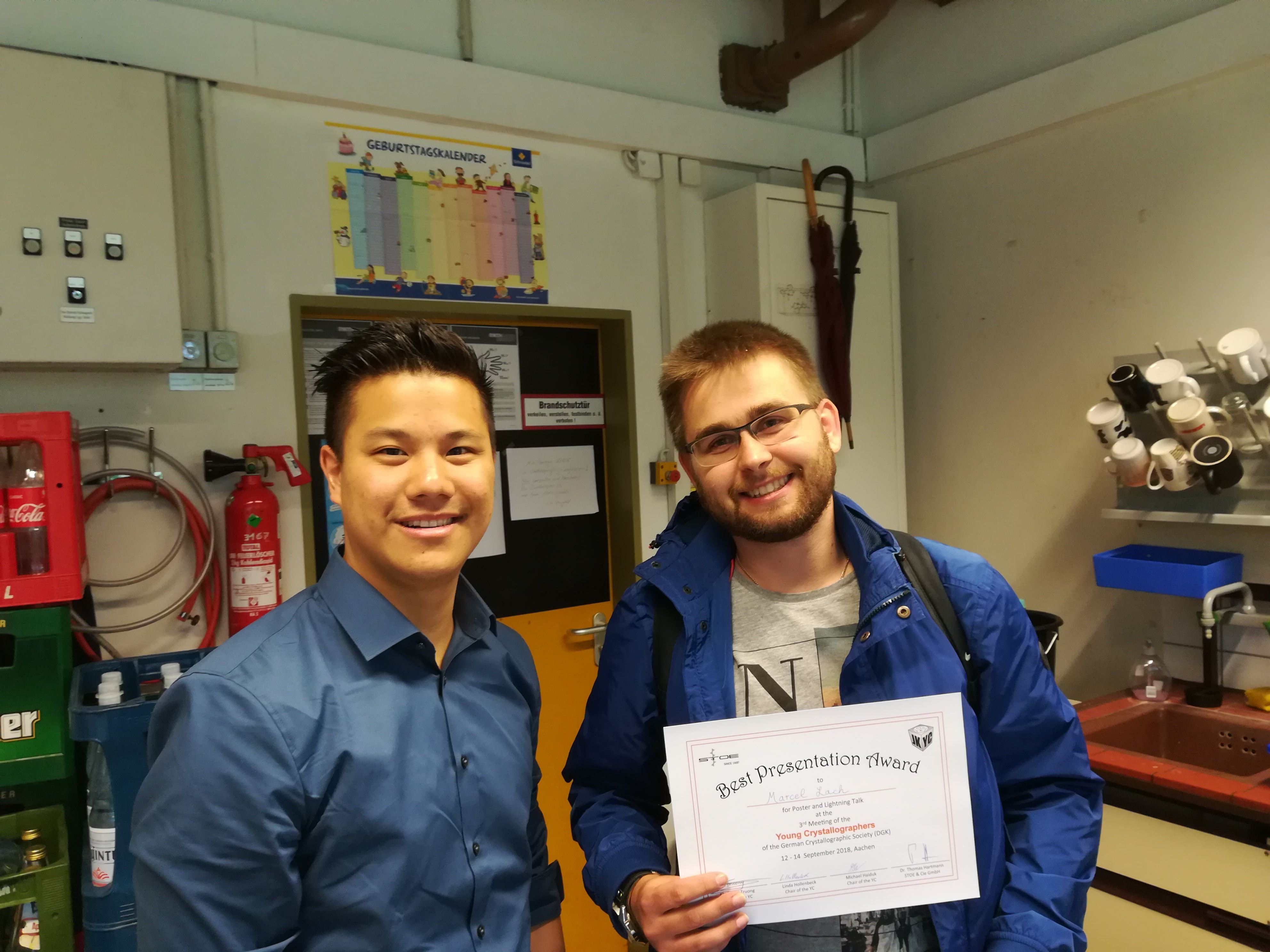Today we will present Marcel Lach. He attended the 3rd meeting of the Young Crystallographers in september in Aachen. In the poster session he presented his theme Binary protein crystals for the construction of highly ordered nanoparticle superlattices and was awarded with a prize. Below he will tell us about himself and his experiences.
For further information about his theme, you can follow this link.
How is your education connected to the work you presented? / How did you end up in your theme of work?
During my studies of chemistry, I learned a lot about analytical methods and I was interested in improving my knowledge in different types of characterization and analytical methods. Then I heard a talk of Dr. Tobias Beck and was fascinated how his group uses protein containers as building block for the assembly of nanoparticles into highly ordered structures. It was exciting to perform my master thesis in his group because I have never worked with protein containers or performed protein crystallography before. Luckily, a postgraduate position to further investigate this interesting project was offered to me.
What is the most interesting part or fact about your work for you personally?
It is the diversity of the system. The protein containers construct the scaffold but the cargo inside these protein containers can be changed and thus the properties of the material. Furthermore, the scaffold can be tuned by changing the crystallization condition or by replacing the protein container with another one. Because of this I can investigate both the structure of the material and the functionality.
If you get the opportunity: what other theme would you like to work on?
Since I am also interested in theoretical chemistry, I could imagine to work on such a kind of topic.
Your theme is very interdisciplinary with a mixture of chemistry, biology and physics. Do you feel like, one of them is decisive for your work?
It depends on when I am asked. There are parts in my work when I would say it is the chemistry part e.g. optimization of a nanoparticle synthesis. Another step includes the use of protein crystallography to obtain the desired material so then the biology part gets more important. In the end I think all of them have the same relevance.
What advice would you give to other young scientists?
You should like your work. I recommend not to choose a topic because of actuality or higher possibility to publish. If you do not like your work, then you will not be motivated. An interesting topic will help you to overcome also the frustrating part of your work which will surely occur.
